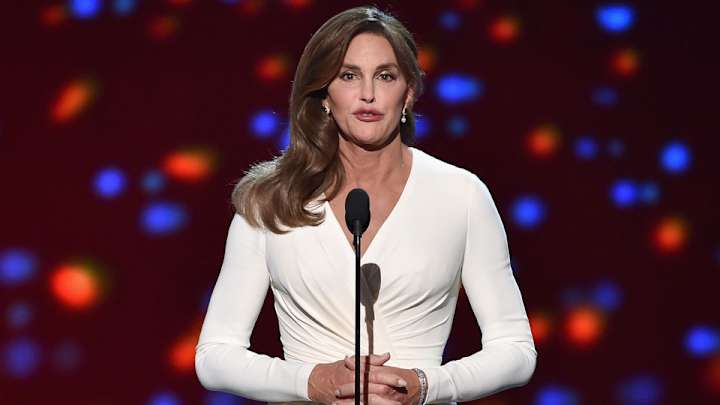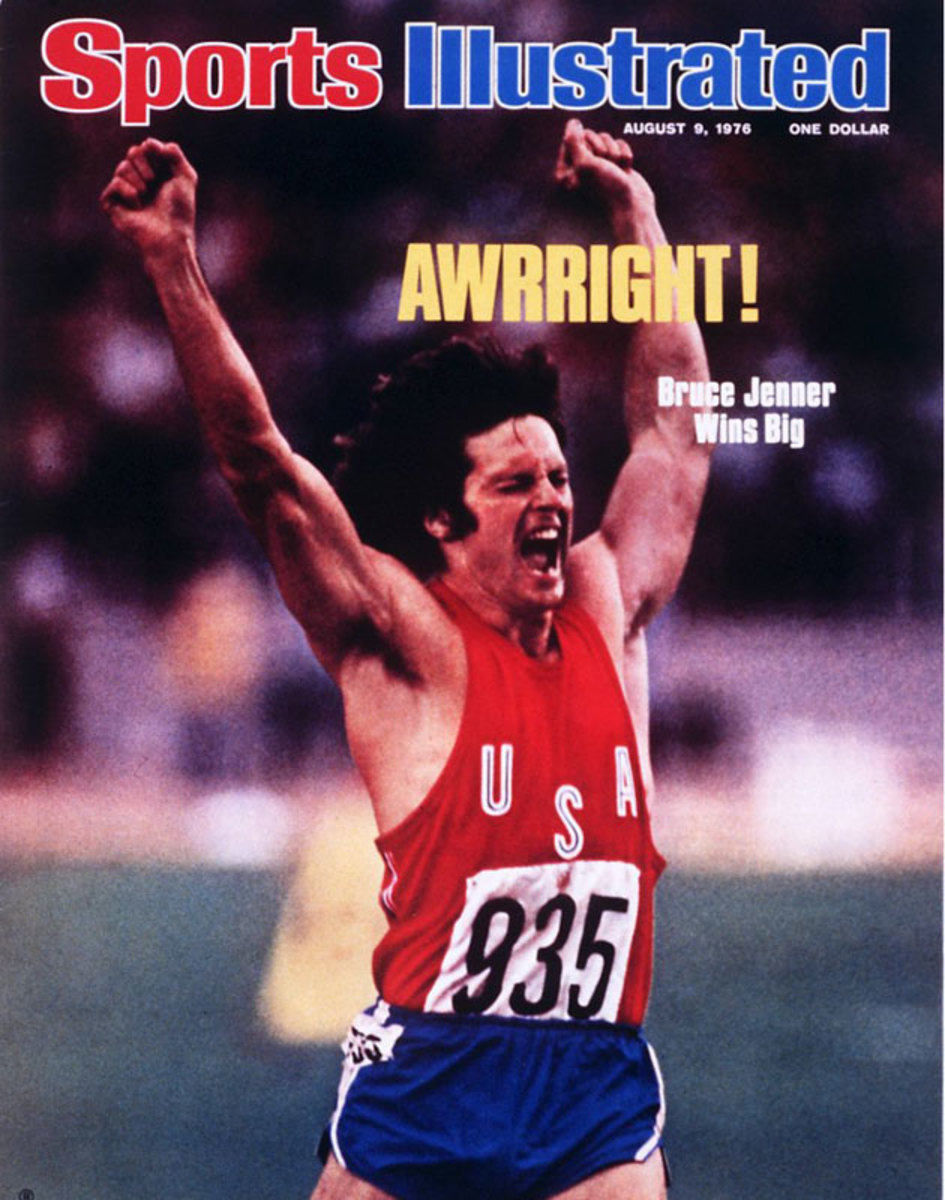39 years after gold, track and field ready to welcome back Caitlyn Jenner

Television cameras and paparazzi followed Caitlyn Jenner, then known as Bruce, all throughout the 2012 U.S. Olympic Trials, yet the 1976 Olympic decathlon gold medalist and sons Brody and Brandon found solace in a VIP tent near the Bowerman curve at Hayward Field in Eugene, Ore.
Jenner sat there as a fan while decathlon events took place on the track and shook her head in amazement as Ashton Eaton was in the process of setting a new world record in the event, something Jenner first accomplished 37 years earlier.
“It was like listening to Michael Jordan watching LeBron James play and seeing how the sport has evolved,” recalls Daily Relay writer Pat Price, who sat behind Jenner and eavesdropped in amazement. (NBC Sports commentator Dan O’Brien, the 1996 Olympic decathlon champion, would say the comparison is more like Bob Cousy watching James since the sport is on a much higher level than in Jenner’s day.)
Jenner pointed out different facets of the athleticism behind Eaton and other decathletes. There were things that could have been done differently. There were also things that wowed Jenner. The sport Jenner once dominated was bringing a special feeling of admiration and enjoyment.
Three years later, Jenner, 65, has publicly transitioned to Caitlyn. During her interview with Diane Sawyer, she took a moment to look at photos from the Olympics and said, “That is me; that is her.” On the 39th anniversary of Jenner’s golden moment in Montreal and less than one year away from the 2016 U.S. Olympic Trials in Eugene, the sport of track and field is ready to welcome Caitlyn back to the community that adored Bruce for many years.
ESPN sideline reporter Jill Montgomery, who works the NCAA track and field championships for the network, expressed the sentiment on a podcast last month.
“I hope the powers that be in our sport would embrace (her) because anything we can do to make this sport what it really is, we should do it,” Montgomery said. “She was a huge part when competing as Bruce Jenner and being an Olympian, medalist and stuff. Go for it. The stereotypes and all the people that are closed-minded—I’m really trying hard not to be judgmental right now—just open up your hearts, open up your minds, let love and let people be who they want to be.”

O’Brien grew up drawing comparisons to Jenner and was inspired by past U.S. gold medalists to focus on the decathlon in his professional career. Jenner mentored O’Brien after he failed to make the 1992 Olympic team. O’Brien recalls Jenner telling him that the main concern in his career should not be world championships or the world record—people remember the Olympic gold medal more than anything.
Their memories and public appearances together, after O’Brien succeeded Jenner as the next American decathlete to win gold in 1996, are part of the reason why O’Brien still struggles with calling Jenner by her new name.
“It’s a little surreal to me because I know that I’m going to meet Caitlyn at some point,” O’Brien said. “I’ll shake her hand or give her a hug, but I continue to call her Bruce because that’s who I know and until I know Caitlyn, it’s going to be difficult to call her Caitlyn. I’m glad for Caitlyn because she was true to herself to the end and sending that message is the most important thing.”
O’Brien is supportive of Jenner’s transition. He also believes that the sport would be ready for Jenner to take the mic at the 2016 U.S. Olympic Trials to provide commentary, given that the 1976 gold medalist does her homework.
“I’m not sure that (Jenner) could give the proper perspective outside of the thrill of victory and what it means to be at the Games and competing at that high level,” O’Brien said. “I think Caitlyn could do a fantastic job on the mic or in the booth, but I think she would have to spend some time watching the sport.”
Two-time Olympian Nick Symmonds dedicated his silver medal at the 2013 IAAF World Championships in Moscow to the lesbian, gay, bisexual, and transgender community. He also serves as an ambassador for Athlete Ally, a non-profit organization aimed at ending homophobia and transphobia in sports and athletic communities.
"One of the things that I've always love about track and field is that it is a very inclusive sport," Symmonds said. "You show up to a Team USA event and to my left I'll have a 300-pound shot-putter and to my right I've got a 100-pound marathoner. It truly has a place for everybody. Whether you're a sprinter, jumper or thrower, or whether you're black, white, male or female, this sport is one of the most inclusive on the planet. In that sense, I see it as inclusive for people who consider themselves transgender as well."
Symmonds does not see any reason why Olympic Trial organizers at TrackTown USA would not invite Jenner to celebrate the 40th anniversary in Eugene next year. (TrackTown USA has not returned a request for a comment on any plans for 2016 involving Jenner and the 40th anniversary of gold in Montreal.) Jenner's life in the public spotlight could potentially bring more eyes to a struggling sport as well as listeners to Jenner's message.
"Caitlyn has done so much for the world of track and field and she can continue to do a great service for the sport and the LGBT community as well," Symmonds said. "If there's a more perfect relationship, I can't think of one. The fact that she's dealt with half the world looking at her probably makes it easier to now handle this media attention."
